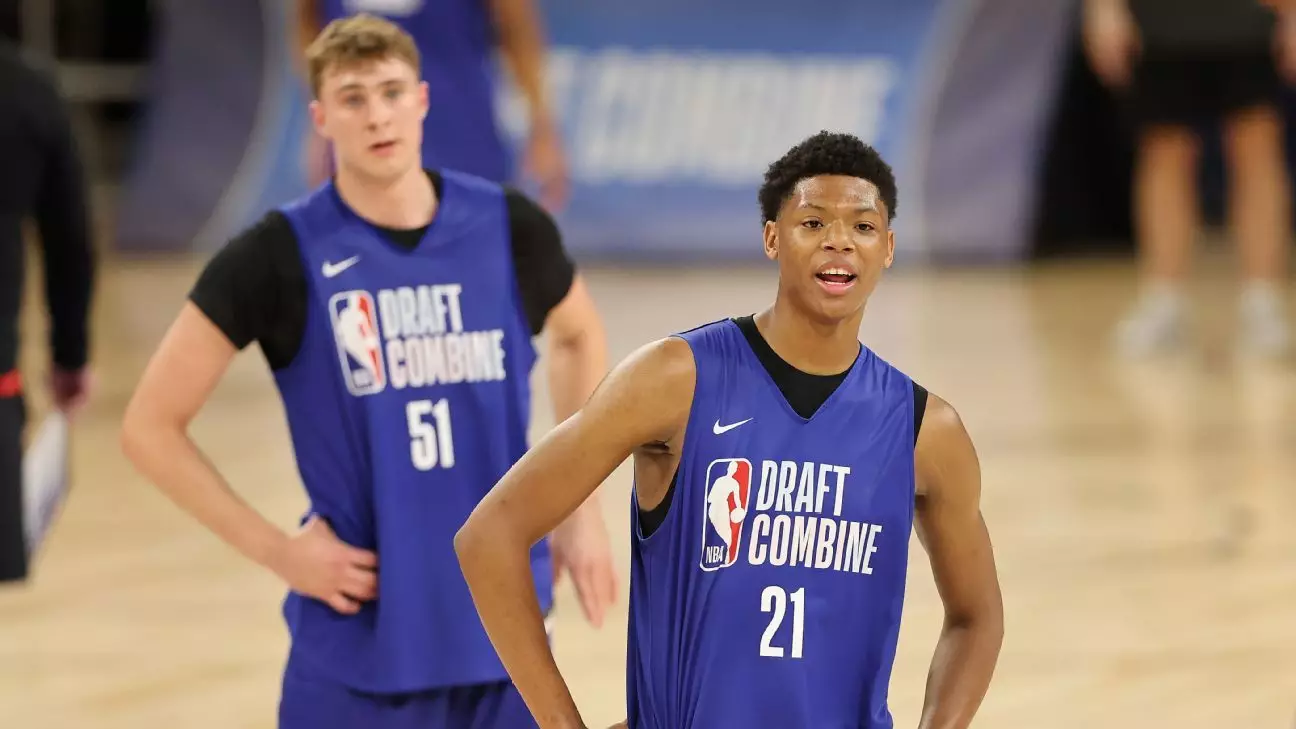In a surprising turn of events, Ace Bailey, a standout from Rutgers University, has canceled his much-anticipated visit to the Philadelphia 76ers. This decision raises eyebrows and invites scrutiny into the predraft strategy of the top-tier prospect—an individual ranked as the third-best player on ESPN’s draft board. Bailey was set to meet with the Sixers for dinner and a private workout ahead of the critical NBA draft, which is poised to be a defining moment in his burgeoning career. Instead, he has opted to step back, a move that could either signal confidence or desperation, depending significantly on who interprets it.
Bailey’s choice is particularly puzzling, as he has yet to engage with any teams despite being projected to land between picks three and eight. The contrast with other prospects, such as Cooper Flagg and Dylan Harper, who have made the rounds visiting various franchises, is striking. Bailey’s refusal to meet with teams creates an air of mystique, but it also raises questions about his approach—an approach that could be perceived as cavalier in a landscape where visibility and rapport can make or break a player’s career.
A Calculated Risk or a Missed Opportunity?
The crux of the matter lies in Bailey’s reported belief that he is a top-three player seeking a clear path to stardom. This ambition is commendable; however, such certainty comes at a cost. By declining invitations from teams in desperate need of talent—like the 76ers and the Charlotte Hornets, who pick fourth—Bailey risks alienating himself from potential allies. His camp’s assertion that they anticipate other teams, such as the Wizards and Pelicans, will be eager to trade up for him adds another layer to the narrative.
Does Bailey’s confidence reflect a self-assured jump to stardom, or is it a miscalculation that risks his positioning in the draft? The Sixers, who have scouted him extensively given his proximity to Rutgers, seem to remain open to the idea of selecting him. Still, reliance on minimal insights raised during the interview at the combine could complicate matters. President of basketball operations Daryl Morey has historically shown a penchant for making selections without private workouts, but could this be the gamble that he chooses to avoid?
What Lies Ahead for Bailey?
With every tick of the clock leading up to the draft, Bailey stands at the precipice of a monumental decision that could shape his career. While the high stakes can imbue a sense of excitement for the player, they also carry an undeniable weight of anxiety. As his counterparts secure visits with teams to solidify their standing, Bailey’s paradigm seems increasingly isolating.
It’s a unique narrative—one that speaks to the ambition within the sporting ecosystem yet also highlights the precarious nature of trust and relationships within it. In this game, visibility is key, but what of the player who chooses to remain in the shadows? His decisions may lead him to a team more aligned with his aspirations—or they could propel him into uncertainty. The choices Bailey is making now are monumental, as they could either stamp his authority in the NBA or create unforeseen hurdles right out of the gate. The world will watch as this story unfolds—one of audacity, ambition, and the relentless pursuit of success.

